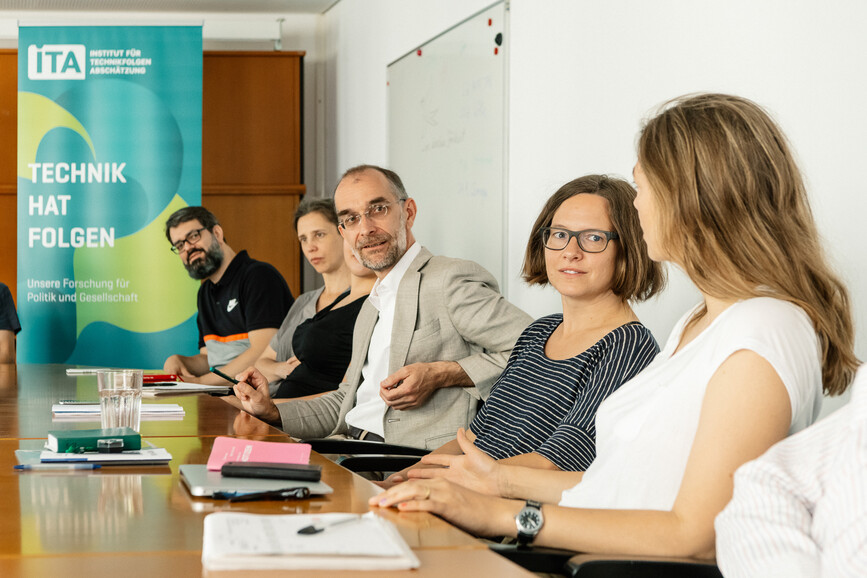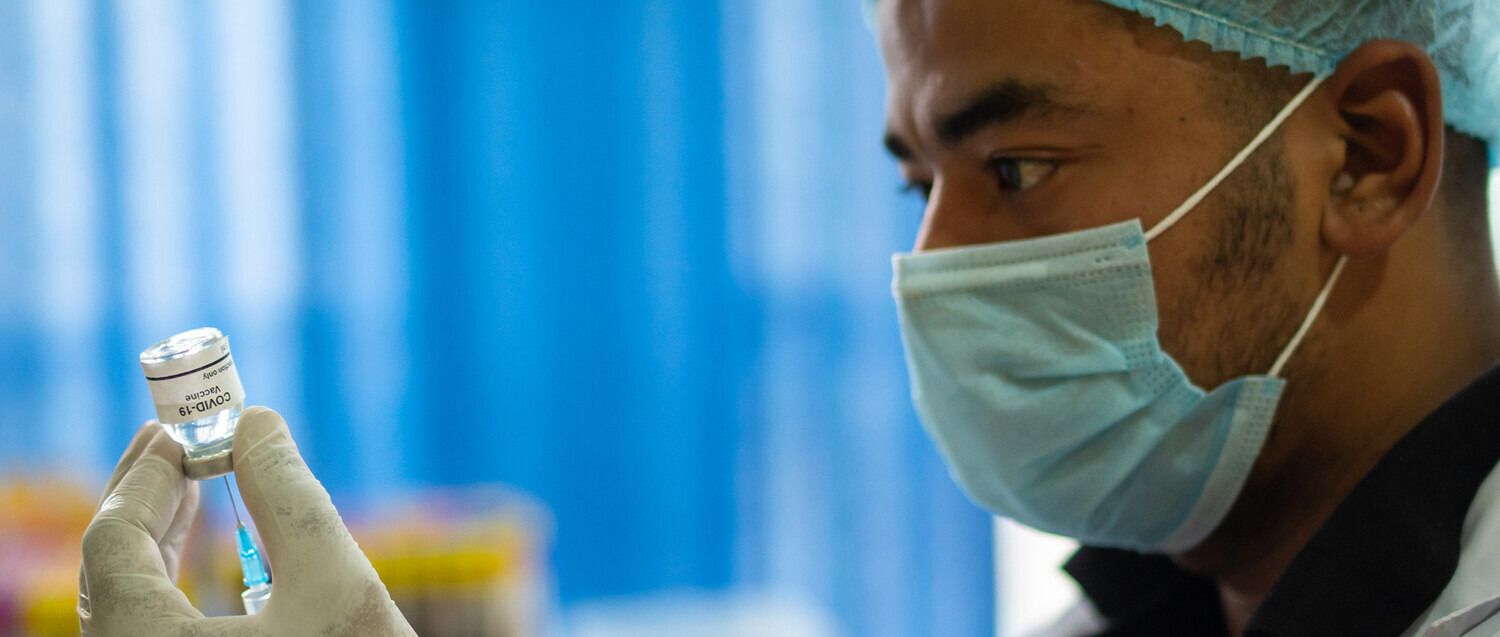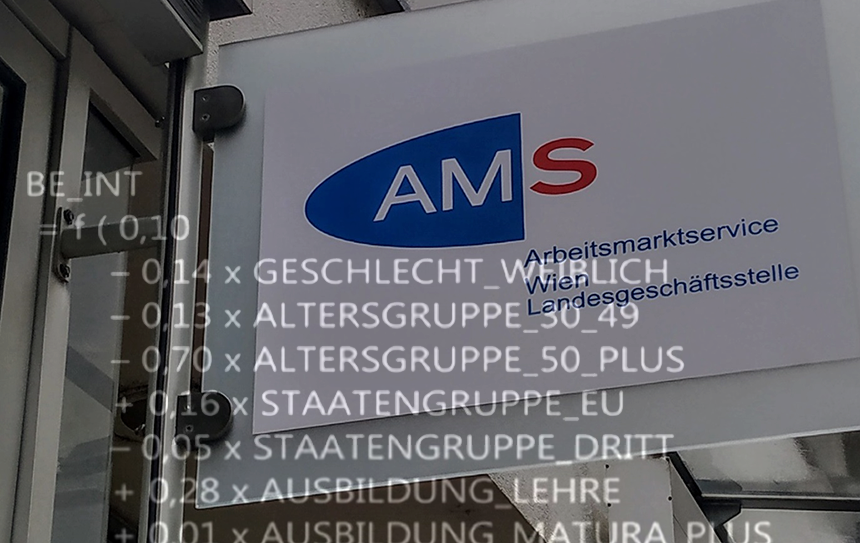by Denise Riedlinger und Michael Nentwich
How do we, as a society, deal with the omnipresence of smart technologies? Is artificial intelligence neutral or marred by inherent, not instantly recognizable biases and prejudices? What fears and reservations are created when expert knowledge is translated one-to-one into policies in the midst of a pandemic? These are just some of the questions the dynamic and future-oriented discipline of technology impact assessment addresses. The varied nature of the ITA’s work is reflected not least in the composition of its team. Its members bring expertise in fields ranging from business to sociology, physics, engineering, human biology, economics and politics to the institute’s interdisciplinary research, and it proactively fosters the development of early career researchers likely to make a meaningful contribution to this kind of research. Our colleagues also interact with students in a variety of teaching roles, sensitizing them to the social and environmental impact of technological developments. Some of our current research topics are:
Blackout and Cyber Security
How might we protect ourselves in the face of various blackout scenarios? How do Austrian enterprises measure up globally in terms of cyber security? The ITA is currently collaborating with the Austrian Institute of Technology (AIT) to provide answers to these questions and suggest suitable solutions to Austrian legislators. Needless to say, scientific scrutiny of the impact of various technologies has the potential to render guidance that would greatly benefit political, administrative and wider public decision-making processes. We have undertaken research for several government departments and stakeholders such as the Chamber of Labour and, since 2017, have also been advising the Austrian parliament. Our goal is to inform decisionmakers of important technological developments and trends at an early stage. Prior to the current research on blackouts and cyber security, the ITA produced an assessment of knowledge pertaining to the nexus between G5 and health and a report on intermediate storage as one of the technologies central to the energy transition.
Is Expert Knowledge a Panacea in the Pandemic?
Since the onset of the Covid-19 pandemic, the ITA team has been undertaking a variety of research projects on the pandemic and its impact on society. One of the crucial questions concerns the role science might play in dealing with a pandemic. To what extent can expert knowledge fulfil the expectations placed in it? Can it replace political decision making? If certain disciplines such as virology suddenly take center stage, what does this mean for other relevant disciplines such as psychology or the social sciences? Might the pandemic propel us towards total surveillance? By addressing questions of this kind, we seek to do justice to the valuable contributions not instantly obvious disciplines too are able to make in an emergency.
AI, Privacy and Data Protection
Social engagement with technologies that are fundamentally transforming our everyday lives and profoundly infringe on our daily experiences and privacy is a matter of considerable urgency. The ITA has long been addressing these issues with various projects. For example, in 2020, we published a widely noted critical exploration of the Austrian AMS algorithm designed to categorize job searchers.
We explore the significance of AI for the labour market from a number of vantages. Our various activities in this field include the publication of the book, When Algorithms Decide for us. AI—Opportunities and Risks, and the Elise Richter project, Performativity in Software Design: A So-ciopolitical Approach to Software Development Practices, which highlighted the concealed manual input of human knowledge into AI undertaken in low-income countries. In addition, we have collaborated with the Chamber of Labour on issues such as facial recognition, credit ratings, concealed data collection on smart phones and digital assistance systems.
NanoTrust—Risk Assessment and Preview
One essential characteristic of technology assessment has traditionally been its prioritization of social consequences even when scrutinizing developments that seem to have little immediate im-pact on the experiences of individual citizens. The NanoTrust project, which has now been running for fourteen years, is a case in point. While the influence of nanotechnologies is constantly increasing far too little has been done to offer a reliable assessment of the associated environmental and health risks. Like other EU countries, Austria seeks to pursue nanotechnology policies that anticipate future developments. Against this backdrop, the NanoTrust project highlights the need for standards governing security in the workplace and the deployment of nanomaterial. Technology impact assessment has the potential to help foster social acceptance by promoting responsible forms of collaboration between producers, employees, and scientific and political decisionmakers.
An Exciting Past, an Exciting Future
The Institute of Technology Assessment looks back on an exciting couple of decades. Established in 1985 as a working group, it became first the Research Department for Technology Assessment (in 1987) and, finally, in 1994, a fully fledged institute (on the institute’s history (see Nentwich/Fuchs 2018). Its founding director, Ernst Braun, a physician, was succeeded by the economist Gunther Tichy. Since 2006, the legal scholar and science and technology expert Michael Nentwich has led the institute together with deputy Walter Peissl. It currently has 26 employees of whom twenty are academics. Given the constant need to assemble interdisciplinary teams to tackle newly emerging projects, the institute is not organized in permanent departments. Instead, it assembles project-specific teams on a case-by-case basis. At any given point in time, the institute is involved in roughly fifteen projects that are funded by a diverse range of grant-awarding and commissioning bodies including the Wissenschaftsfonds, corporations such as the Chamber of Labour, govern-ment departments, national and state legislatures and the EU.
Links:
ITA website: www.oeaw.ac.at/en/ita
On the institute’s history, see Nentwich/Fuchs 2018 (in German): epub.oeaw.ac.at/ita/ita-papers/30-Jahre-TA-in-%C3%96sterreich.pdf
ITA-Dossiers—A selection of two-page research re-ports: www.oeaw.ac.at/en/ita/publications/pu-blication-series/ita-dossiers
Foresight und Technikfolgenabschätzung: Be-richte über Zukunftsthemen für das österreichi-sche Parlament: www.parlament.gv.at/SERV/STUD/FTA/





